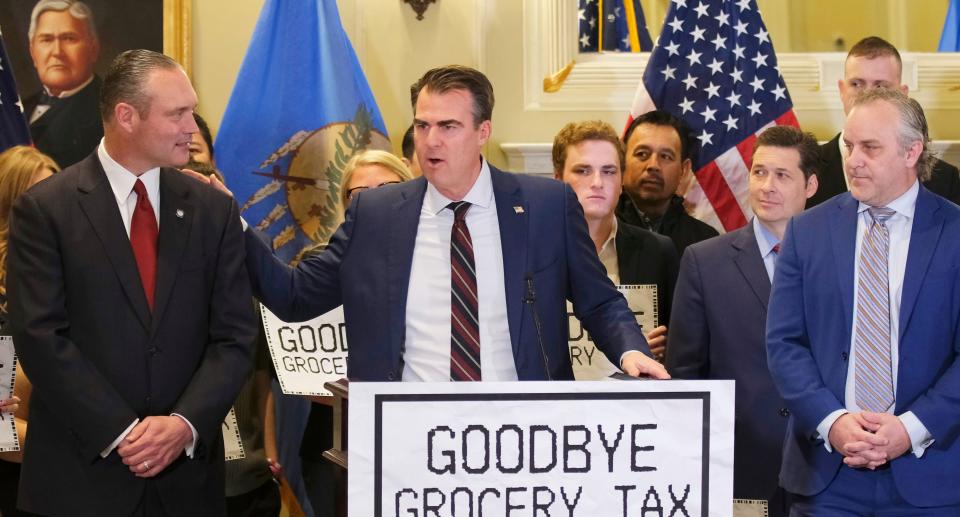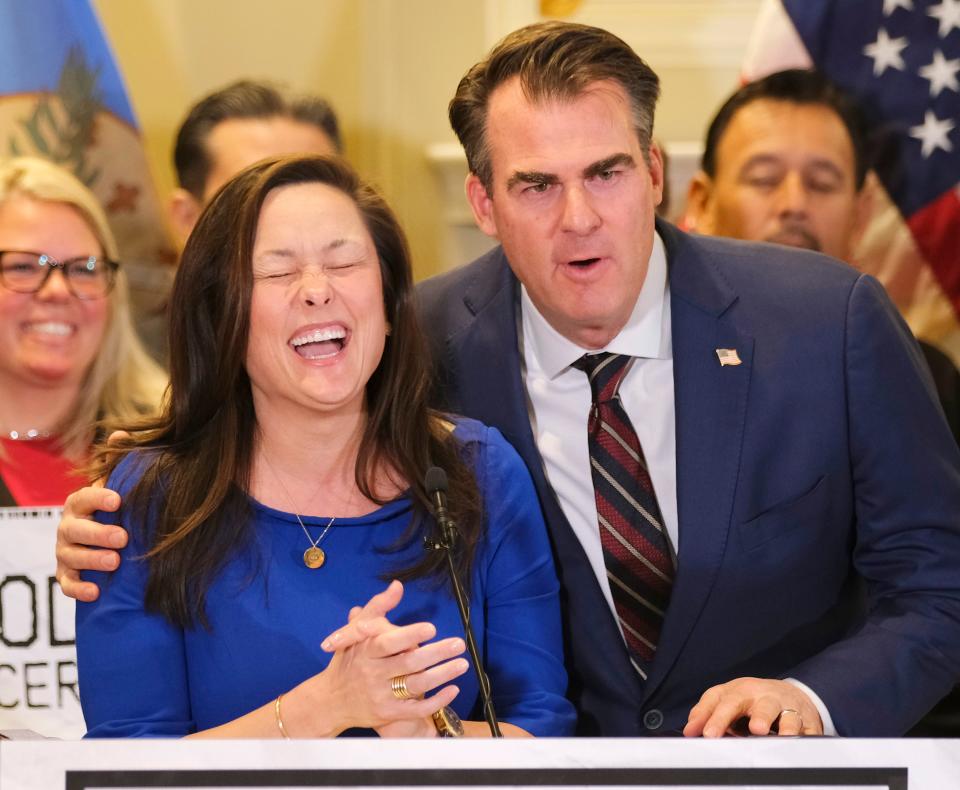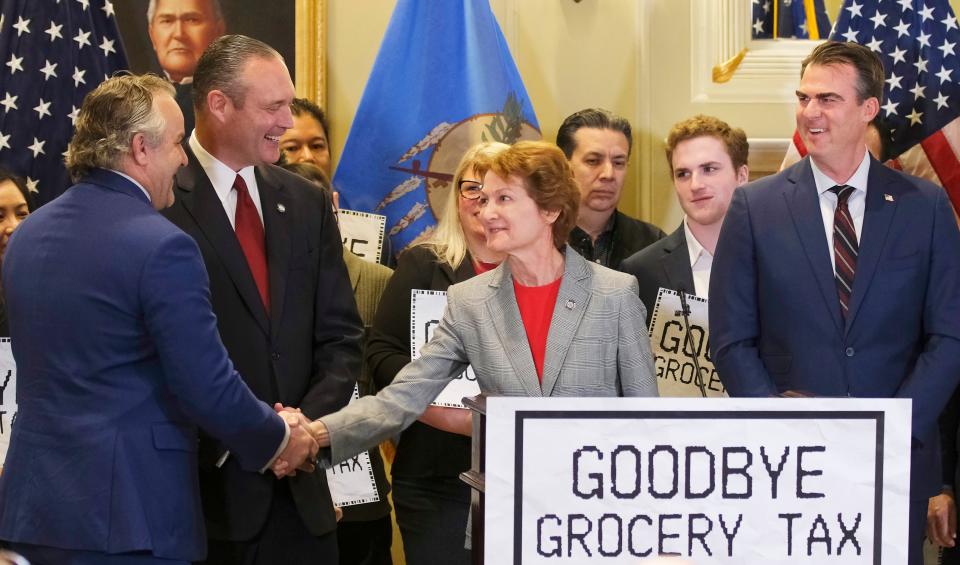Oklahoma Gov. Kevin Stitt signs grocery tax bill eliminating state's portion of food tax
- Oops!Something went wrong.Please try again later.
Oklahomans can expect a decrease in their grocery bills late this summer, after Gov. Kevin Stitt signed a bill to eliminate the state’s portion of the grocery tax.
The bill signing, held Tuesday in the Capitol's ceremonial Blue Room, was a rare occasion for bipartisan celebration and came after a five-year fight by some in the Legislature to make groceries more affordable. The agreement represents — at more than $400 million when fully implemented — the largest single largest tax cut in state history. The state’s portion, 4.5%, equals about $3.83 on an $85 grocery bill.
Stitt said the tax cut would help Oklahoma families.
“It affected people on the lower income bracket much more than people that made a lot of money,” the governor said, noting that while on the campaign trail, he learned people were driving across the state line into Texas for groceries.

“By cutting the state’s portion of the grocery tax, we’re going to be delivering on real relief for real Oklahoma families," Stitt said.
House Speaker Charles McCall called the tax cut "monumental" and said it was coming as the state was on track to have its fifth-best economic performance.
“Our work is not done," said McCall, R-Atoka, who along with the governor has been pushing for a cut in the state's income tax.
More: How will the Oklahoma grocery tax cut actually affect my bill? What to know
"I think even regardless of a political party, that's what we're here to do,” said McCall, R-Atoka. “This is exciting, not only that we're eliminating the state's portion on the grocery tax that affects every constituent that we have in the state of Oklahoma, but it's such a bold and big accomplishment.”
House Minority Leader Cyndi Munson, a Democrat from Oklahoma City, was part of a bipartisan tax cut effort over the past several years. She praised her predecessor, Norman's Emily Virgin, who completed an interim study on the effects of eliminating the grocery tax. The study said the bottom 20% of earners spend about 10% of their income on groceries, while the state’s wealthiest residents spend about half of that percentage.

“It’s always been a priority. It will continue to be a priority for House Democrats, Number One, to protect our revenue base,” Munson said. “We’ve got to make sure we have revenue coming to the state so we can make sure critical services that are so important to Oklahomans are taken care of.”
Senate Minority Leader Kay Floyd, D-Oklahoma City, said Senate Democrats were pleased to be a part of the effort. “We are going to continue to try bipartisan effort and continue to look at tax relief,” she said. “Reform is critical. We can’t just pick and choose.”
What to know about the Oklahoma grocery tax cut, and how your bills might be impacted
Data from the U.S. Census Bureau shows that Oklahomans spend about $279.16 per week on groceries. The new tax cut cut will affect food that is taken home and prepared food. On-site meals, such as deli food don't qualify.
The cut becomes effective in late August, and while it eliminates the state's portion of the grocery sales tax, city and county taxes still apply.
Depending on where you live, city sales/use taxes can be as high as 5.5%, plus county sales taxes up to 2.5%, a study by the the Oklahoma Policy Institute noted. The new law does prohibit municipalities from raising their retail sales taxes until June 30, 2025.

Stitt said he was proud of the bipartisan support and thanked House and Senate leaders and other community leaders across the state. The bill passed the Senate last week with a vote of 42-2.
Oklahoma was one of only 13 states that taxed groceries, said Senate President Pro Tempore Greg Treat, R-Oklahoma City, a strong supporter of the cut. He said Oklahoma was one of five states with the highest rates. Oklahoma, Idaho, Dakota and Tennessee have sales tax rates varying from 45 to 4.5%, and Mississippi adds a 7% sales tax to groceries, according to AARP.
"We're eliminating the state portion, and that's a huge, huge deal," Treat said.
This article originally appeared on Oklahoman: Oklahoma Gov. Stitt signs bill eliminating state's grocery tax

